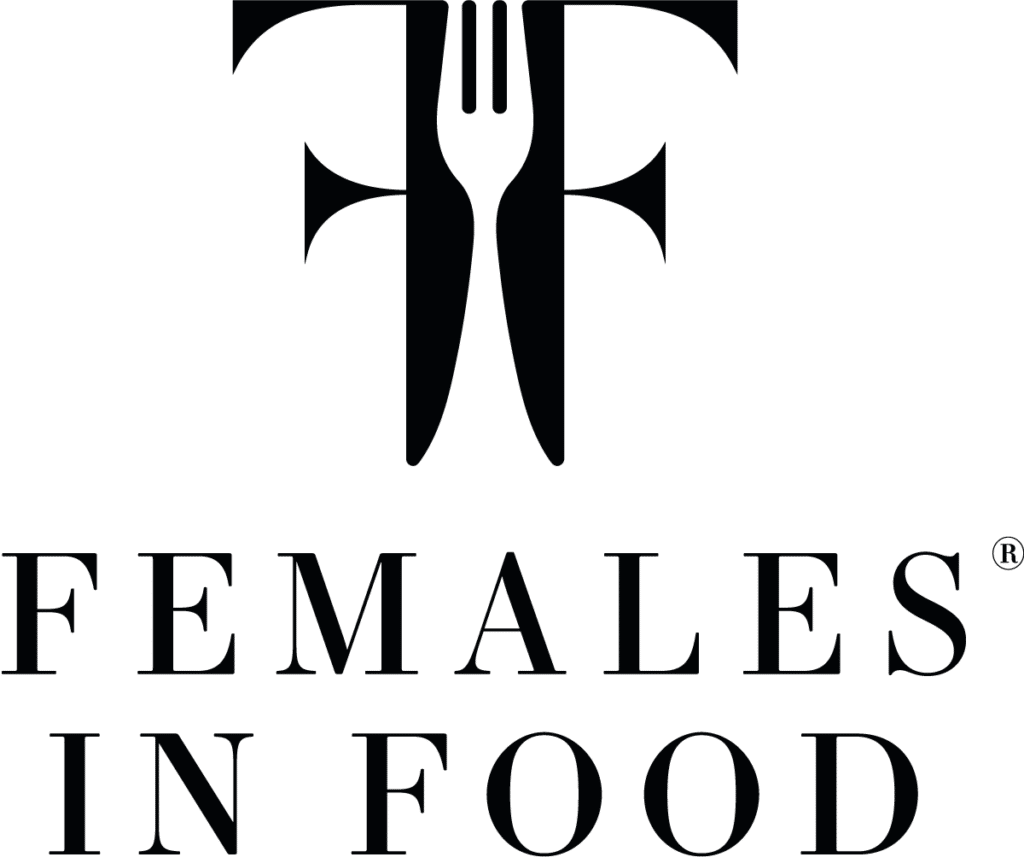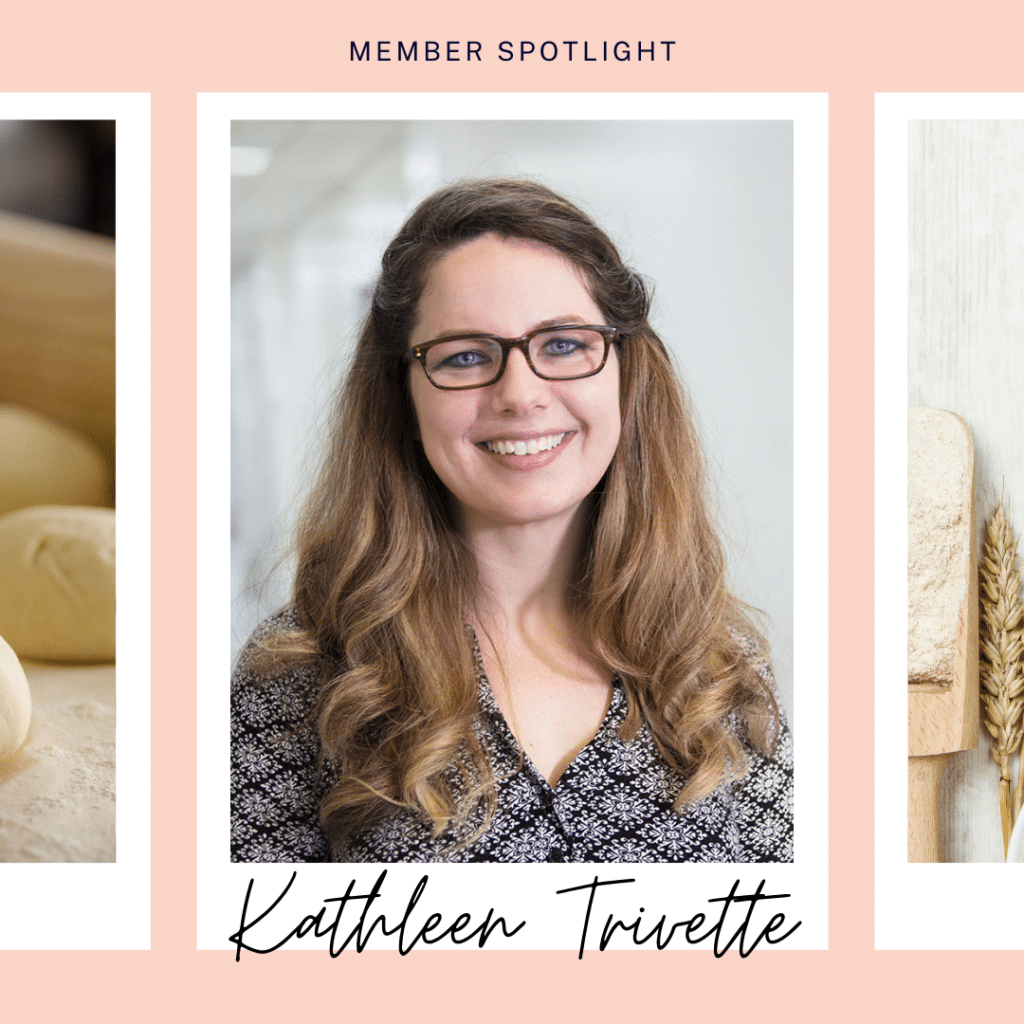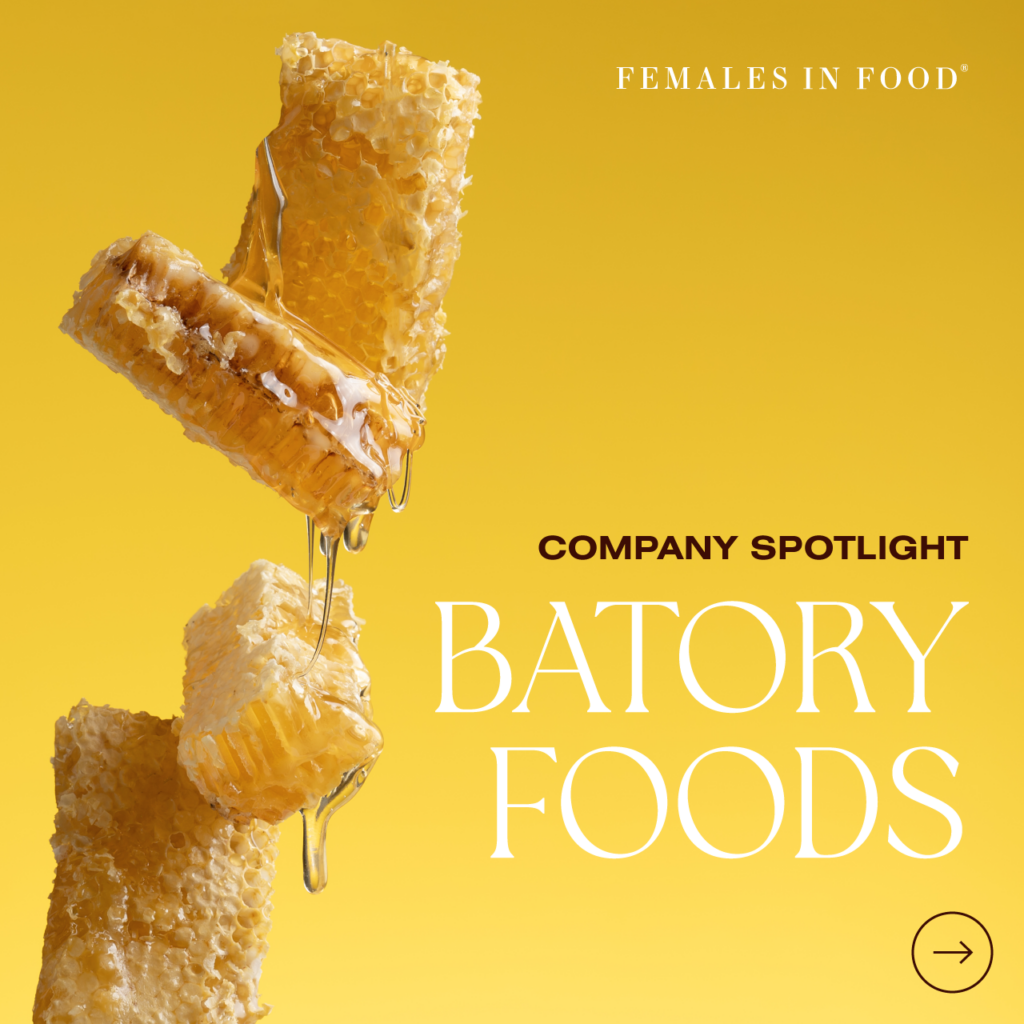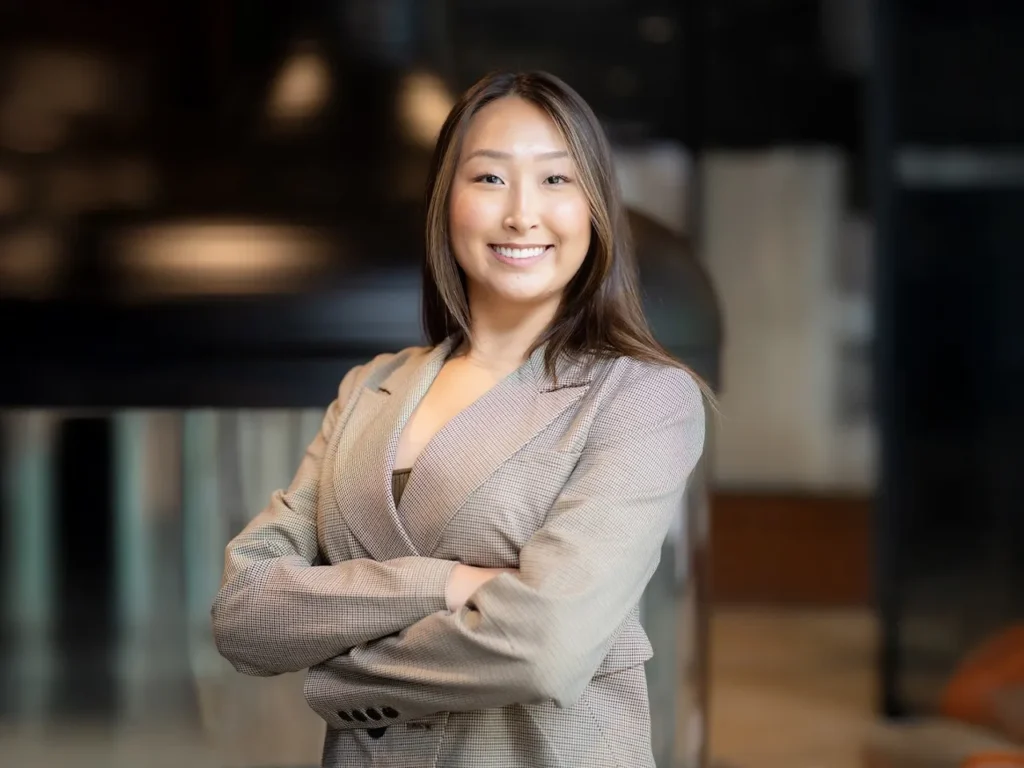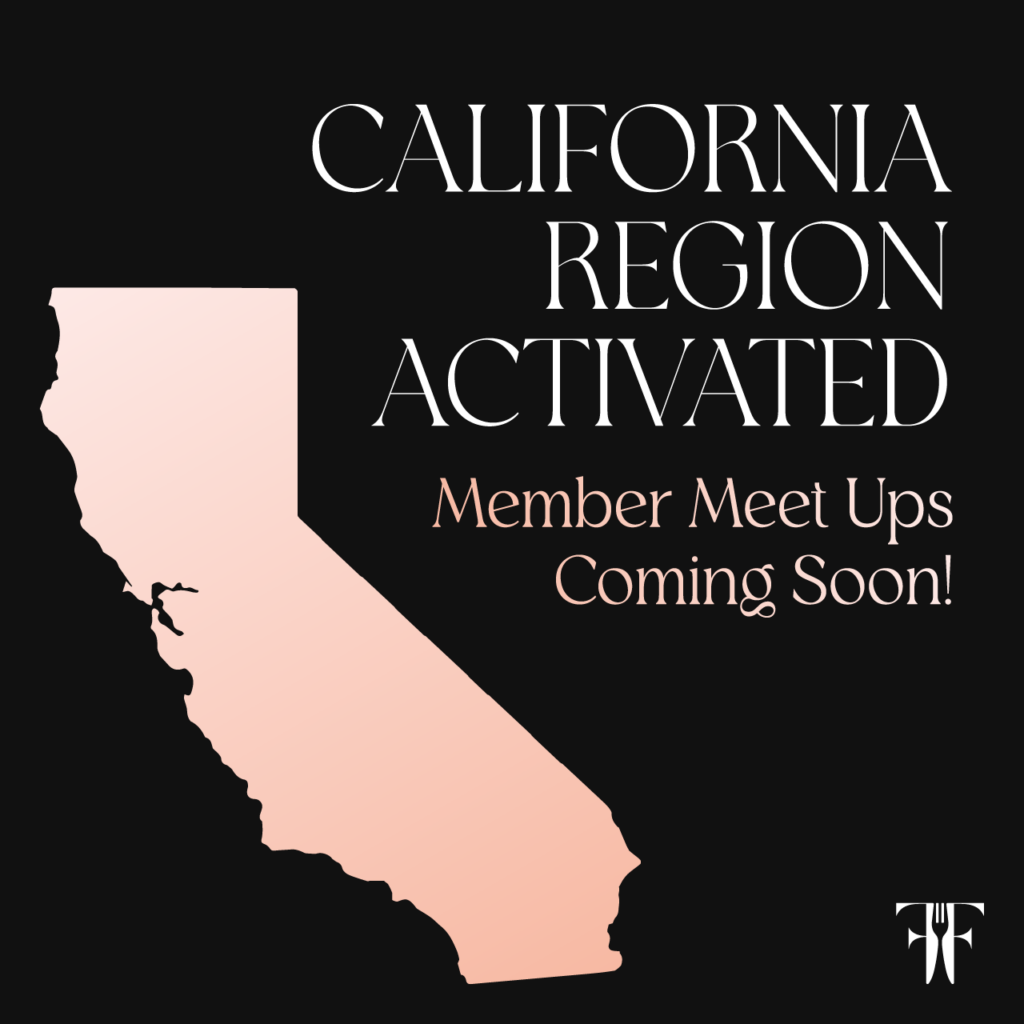Summary – Kathleen Trivette is currently a quality engineer at General Mills, but her start in the Food industry was all but normal. Her path was paved with a hunger to learn and can-do attitude. She got her start at the Oregon Wheat Marketing Center where she sought to become a technical expert in milling and baking science. Her natural ease around customers and extrovert personality quickly set her apart from other scientists. While balancing a full-time job and family life she completed her MBA and transitioned from a non-profit to a corporation. Kathleen opens up about her journey into the food industry, differences between working in a corporation and non-profit and how she manages to balance it all while blazing her own career.
Her Starting Point
Q. How did your time at University prepare you for your role today? What initially sparked your interest to pursue a career in the food industry?
College was instrumental in helping me learn how to multi-task and prioritize. I worked full time, had a two-hour commute, and took a full class load. I learned how to manage projects, time and scientific experiments early in life and these skills have helped me in every job since. Specifically being able to demonstrate my attention to detail and organization was critical in helping me navigate into my first role at the Oregon Wheat Marketing Center as a lab technician. From that point forward I had a hunger to learn and continued to teach myself Food and Bakery Science.
My initial interest in the food industry was sparked during my years at college when I worked in food service, however, I have always had a deep-rooted appreciation for the industry as food brings people together. The food industry is constantly changing and for the first time, people have the ability to gain cultural experiences without leaving their city. There is something so powerful about being able to learn about someone and their culture by simply having a meal with them.
Q. Graduating with a B.S. in Criminology what skills and qualities did you bring to the table that helped you stand out from the crowd?
I had strong attention to detail, experience working in a lab and an introduction to the bakery and flour world from working at pizza hut. While working at Pizza Hut I gained hands-on experience making the pizza dough that would ultimately become a foundation for my entire career. Being an extrovert also set me out from the crowd. The wheat marketing center needed a technician that could easily communicate with guests, clients, and farmers. Having natural ease of being able to talk with others and a scientific background helped get me the job.
Q. Without any formal food science training, how did you go about learning the skills necessary to become a thought leader and technical expert in the baking industry.
I learned to ask a lot of questions. I started with learning how to run the lab tests I was asked to perform and then started to dig a layer deeper. I wasn’t happy with just providing numbers, and felt I needed to understand the test, the numbers, and what that meant for companies, the final product, and the farmers. The Wheat Marketing Center was also very supportive in continuous education and I took every opportunity to go to courses on milling, barley, flour, and baking.
Her Big Break
Q. Your first role was at the Oregon Wheat Marketing Center, what aspects of working at a non-profit did you really enjoy. What were some of the challenges?
I really enjoyed working for the farmer. My work helped the farmer understand how their dollars were being spent to drive the US wheat economy. It was also quite rewarding to educate individuals from other countries on how functional the quality of wheat is to the final product.
From an employment perspective, I found the benefits to be better than what most corporations are offering.
For challenges, the limiting factor was career advancement and growth. We were a small and very dedicated team, but positions did not come available very often.
While I had the opportunity to meet and work with people from around the world, it was hard to establish a community and network as people would come for training and then leave after a few days.
Q. When you decided to leave the non-profit to apply for a corporate scientist role at General Mills, how did you prepare for that interview?
I spent a lot of time practicing behavioral interview questions and ensuring my resume was written with the proper “search words” so that it would not be automatically rejected from the applicant system. I knew once I got the interview I could use my confidence from over 10 years of work experience to make me feel more comfortable. It was important to remind myself that I was a technical expert in this area and had the criteria necessary to succeed in the job.
Q. What advice and tips do you have for individuals considering making a switch from a non-profit to corporate.
Be ready for a big change. The language, acronyms, systems, and steps to accomplish anything is a big learning curve. It can be overwhelming and the transition can take longer than you expect. Go into it confident that you know your stuff and be open to asking people for help navigating without feeling insecure about it.
My transition into General Mills was easier because I chose to embrace the people there who were willing to help me. They were wonderful in answering my questions and helping me find my way.
Her Perspective
Q. You recently completed an MBA while working full time and raising a family, what advice would you give to women considering advanced degrees? How did you prevent burnout during this time?
Time management and sacrifice. For an entire year, I was up at 4am, worked on school stuff until 6:45am, went to work from 7 – 4 and then had family responsibilities and more school work until 10 pm.
I kept going because I knew there was an end. You can do anything you want, it just takes a lot of hard work. There will be burn out, as the time you used to have for yourself will be consumed by school. I used the holidays and my school breaks to fully unwind, rest and focus on me. My advice to others would be to embrace the free time and not feel guilty.
Q. You’ve been leading a team and managing people for a good amount of time in your career. What advice would you offer to new female managers? Are there any resources you’d recommend?
I would recommend the Myers-Briggs assessment for the manager and team. This assessment has helped me understand how others think and process information.
In general, I do not like hierarchy, therefore, I approach management from the perspective of being a trusted advisor and mentor to my teams. It is important that there is trust amongst the team and they know I have their back.
I have also found that by doing small things, such as having a breakfast burrito bar or bringing in doughnuts once in a while can significantly increase team camaraderie and engagement. At the end of the day, people want a sense of community and creating an inclusive environment within your team is where it starts.
Q. As leaders, it is increasingly difficult to disconnect from email and other communication platforms during free time. How do you disconnect and unwind in your free time?
I try really hard to put my computer away when I get home. If an email pops up on my phone, I don’t respond until morning unless it is an emergency. I prioritize family when I am at home and try not to feel guilty about separating that space.
Q. What do you wake up looking forward to? What is next in your career?
I wake up excited to learn new things. There are so many different avenues in the food industry and opportunities to learn. I am excited to see what new opportunities and doors open in the future.

